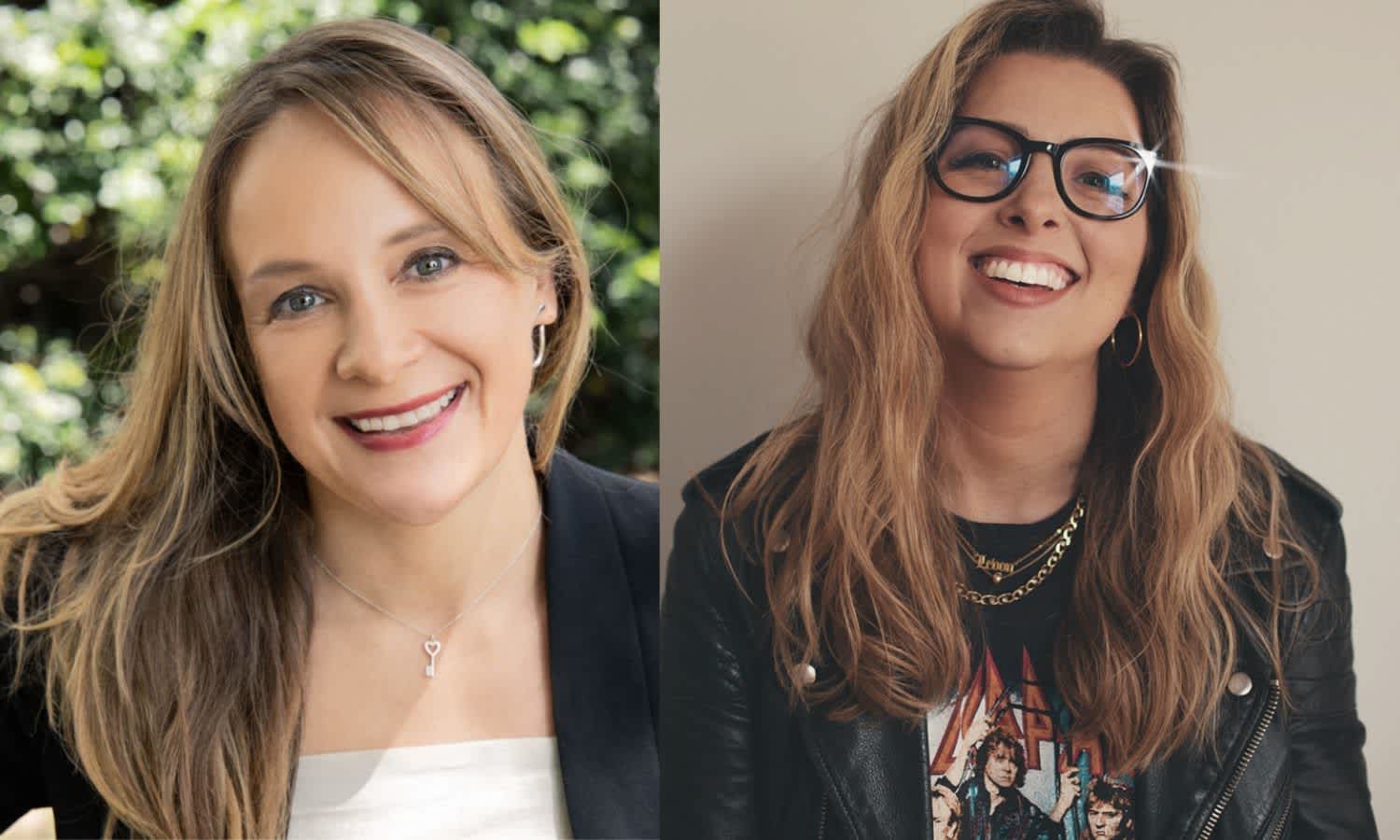In The Sun Also Rises, Ernest Hemingway describes a character’s slide into bankruptcy as happening “gradually, and then suddenly.”
While he was talking about finances, the line has been applied from everything to depression, addiction and relationships — because it sums up the human experience of failure. We can think everything is going to plan until suddenly things fall away beneath our feet. It’s not until we look back that the warning signs seem obvious.
I thought of this line recently when I had the universally unpleasant experience of falling out with an old friend. I had caught them in a few small lies and exaggerations. I then questioned their behaviour towards another friend of ours, who they had been talking about relentlessly for weeks. They had previously mentioned thinking they might have a borderline personality disorder. I probably unwisely raised this when challenging their interpretation of our friend’s behaviour. Their response was explosive. They accused me of being a terrible friend, deliberately misinterpreting them, and being intentionally cruel. An hour after the call, I found out they had exaggerated the situation with our other friend to such an extent that it was basically a fabrication. I’m still not sure why they did it.
While the falling out was initially shocking, I quickly saw the “gradually, and then suddenly” of it all. The flickerings of annoyance when they insisted on calling me during work hours, the exasperation with their negativity, the trepidation I felt on nights we “went out,” wondering what kind of mood they’d be in. I’d been suppressing negative feelings about this person for a while.
Why? Because I didn’t want to lose the friendship. Personally, I feel that losing friendships can be harder than losing romantic relationships. After all, we enter most romantic relationships knowing that, statistically at least, it’s more likely they will end than they won’t. On the other hand, there’s a perception that friendships should last forever and when they don’t, we scramble for a “why.”
My friendship breakup left me feeling confused and embarrassed. Was I such a bad friend that they didn’t feel they could talk about their feelings without inventing a scenario to justify them? Did this person who said they loved and respected me think I was an idiot? How could they dispose of our friendship so quickly? And was I abandoning a friend who actually needed my help and support?
Personality Disorder Diagnosis to the Rescue:
It wasn’t till I saw my psychologist that an explanation for the person’s behaviour was suggested to me. They might be a “covert narcissist.” I was surprised. The main problem in our friendship was the person in question’s low self-esteem. They never wanted to go out because they were self-conscious, their savage negative self-talk was confronting to listen to for anyone who cared about them, and they often seemed really unhappy. They weren’t skipping around like a television narcissist, which made me question this diagnosis.
So, I read up on covert narcissism. According to the first website I visited, people with covert narcissism are “vulnerable” and appear to lack self-confidence — tick.
They avoid social situations because they fear comparing themselves to others — tick.
They are hypersensitive to criticism — TICK.
They are likely to experience depression, anxiety and symptoms of other personality disorders, like a borderline personality disorder… Tick.
My initial feeling? Triumph and elation. Firstly, my friend was unlike to harm themselves, so I didn’t have to worry about cutting them off. Secondly, the falling out had nothing to do with me and everything to do with them.
I read probably 25 articles about covert narcissism over the next 24 hours, each time feeling mounting satisfaction, each time sidelining positive memories with the person. Then, after a few days, I realised… I was still feeling really, really sad.
Their “diagnosis” didn’t stop my heart sinking every time I thought of texting them when something funny happened or when my phone unhelpfully tossed out a “memory” with them. It didn’t stop me from feeling lame for being sad about it either (after all, it wasn’t a romantic relationship – so why was I so upset?).
It also made me think about how frequently my friends and I threw around diagnoses in conversation. Speculating whether people with behaviours we found challenging had narcissistic traits, borderline, obsessive-compulsive. Around the same time, Succession, The Tinder Swindler and Inventing Anna were all over streaming and articles about narcissists were everywhere. It made me question how helpful labelling other people actually is, seeing as it left me feeling just as miserable. So, I spoke to some experts on the subject.
Experts Tell Me Why We Love Labels:

Ash King is a psychologist with Support Act, a music industry charity that provides crisis relief services for musicians, managers, crew and music workers. She is also completing her PhD with the Cyberpsychology Research Group at the University of Sydney, where she explores social media and identity.
Jennie Hudson is a director of research at the Black Dog Institute and a clinical psychologist who specialises in developing services and accessible interventions and suicide prevention for young people.
Both agree that there is a strong human instinct to categorise.
Ash King explains: “We live in an unstable and uncertain world — so we try to create structure as best we can, and one thing we love to do is understand ourselves and other people.”
King says another parallel with diagnostic culture as an antidote to uncertainty is millennials and Gen Z’s interest in astrology. She tells me: “It’s just another system of categorisation to explain why we are the way we are. But, when we’re talking about mental health and diagnostic labels, we assume things are supported by much more rigorous data and research.”
Jennie Hudson says categories and labels aren’t all bad. They’re actually essential. Hudson explains: “For humans, stereotypes facilitate decision making. In a clinical context, they help us get people to access care, whether that’s the right treatment and medication or social services support. People might also understand their symptoms better and discover that ‘there are other people like me, making them feel less alone.”
The flipside of this is that severe mental health conditions can be trivialised, and normal behaviour can be pathologised. Hudson uses BPD as an example: There is a long history of over-diagnosed borderline personality disorder in women — someone might say you have BPD when really you’re just angry and maybe for a good reason.”
Personality disorders also tend to be seen as fixed, but like any mental health disorder, they are complicated by neurochemistry, life experience, support networks and trauma. They’re different for everyone and may be more or less impossible to treat depending on the person.
Hudson says, “[With narcissism] there is a continuum and behaviour patterns that develop over time. Someone might have less empathy or understanding of other people and display narcissistic traits. But there is a risk with personality labels that it doesn’t allow people to change. Particularly when they’re young and still learning how to be in relationships.”
This is why many clinicians avoid personality labels entirely. King explains, “When used interpersonally, they can flatten the understanding of a person and relationship dynamics — or encourage us to think ‘the relationship could never have worked because there is something ‘wrong’ with their personality’. Meanwhile, they are frequently unhelpful in a psychiatric setting because they are so stigmatised.”
While some mental health disorders like depression and anxiety are easy for patients to accept, others really aren’t. She notes: “You still don’t see people walking around saying ‘Hey, I’m a narcissist, or ‘Hi, nice to meet you. I have an antisocial personality disorder.’ There are trending conditions that people feel comfortable associating themselves with and then other conditions that are far less sexy.”
In this context, a psychologist suggesting a patient has narcissistic traits can close off the opportunity for any treatment: “People with a narcissistic personality disorder do seek help sometimes because they have relational issues or occupational issues. But they’re likely to interpret a therapist applying that label as ‘you’re a horrible, evil person who can never change’,” says King.
We enter dangerous territory when we adopt these terms in our relationships, because of something called confirmation bias. Confirmation bias is a process by which we filter information to fit our assessment of a situation, rather than seeking information to form an assessment. “Once we have a label, it’s easy to look at other people and only see the things that confirm we fit into that label,” King says.
The upshot of my conversations with two experts in the field? Diagnosing people you’re mad at isn’t a great idea, and probably isn’t cool behaviour. “We can’t cherry-pick the mental health conditions that are cute and fun, and use others as hurling insults when people make us feel bad,” says King. Okay then.
Is There Anything We Can Do Instead?
So what’s the advice if you think someone you know might have a personality disorder OR if someone close to you helpfully suggests you might have one?
Hudson says that if you’re concerned about your mental health, seeking formal help is the best idea, rather than turning to TikTok or the internet. And…. what if you feel someone close to you fits the brief? Hudson has some suggestions.
“We should not be using mental health conditions as an insult. These are serious concerns, and people really suffer. We need not trivialise it. Instead of clinging to a label, think about how it can help you understand, rather than dismissing someone else’s experience. One in two of us have mental health issues, so we don’t want to live in a society where we don’t interact with people who have mental health issues — as it will really limit our choices!”
What Am I Going to Do?

At the end of the day, I have low expectations of the friendship rekindling. Lying makes me profoundly uncomfortable, and the individual feels they did nothing wrong. This article isn’t designed to suggest that people who lie to you or behave abusively towards you should be given a free pass for their behaviour. My friendship disintegrated over some small fibs; I would not be tying myself in knots about it if someone had been physically or emotionally abusive towards me.
Talking to experts did prompt me to think about all the positive memories I’d pushed aside while enthusiastically researching my ex-friend’s informally diagnosed condition. While it’s hard to sit with the confusion and uncertainty of a lost friendship, clinging to a label provided me with zero closure or resolution, and really left me feeling worse. After all, it’s not very comforting to think the world is full of unrepentant narcissists out to get you. So, I’ll be logging off WebMD for the foreseeable and sitting with my feelings.
If you or anyone you know is struggling and needs support, call Lifeline on 13 11 14 or Kids Helpline on 1800 55 1800, both of which provide trained counsellors you can talk with 24/7. You can also speak with someone confidentially at Headspace by calling 1800 650 890 or chat online here. If you are in immediate danger, call 000.
If you are in need of resources to help yourself or someone you know with issues relating to alcohol use, please call the National Alcohol and Other Drug Hotline on 1800-250-015 for free and confidential advice.
If you are in need of resources to help yourself or someone you know with issues relating to drug use, please visit Reach Out Australia or the Alcohol and Drug Foundation for help, information and resources.
Read more stories from The Latch and subscribe to our email newsletter.







